Premium Only Content
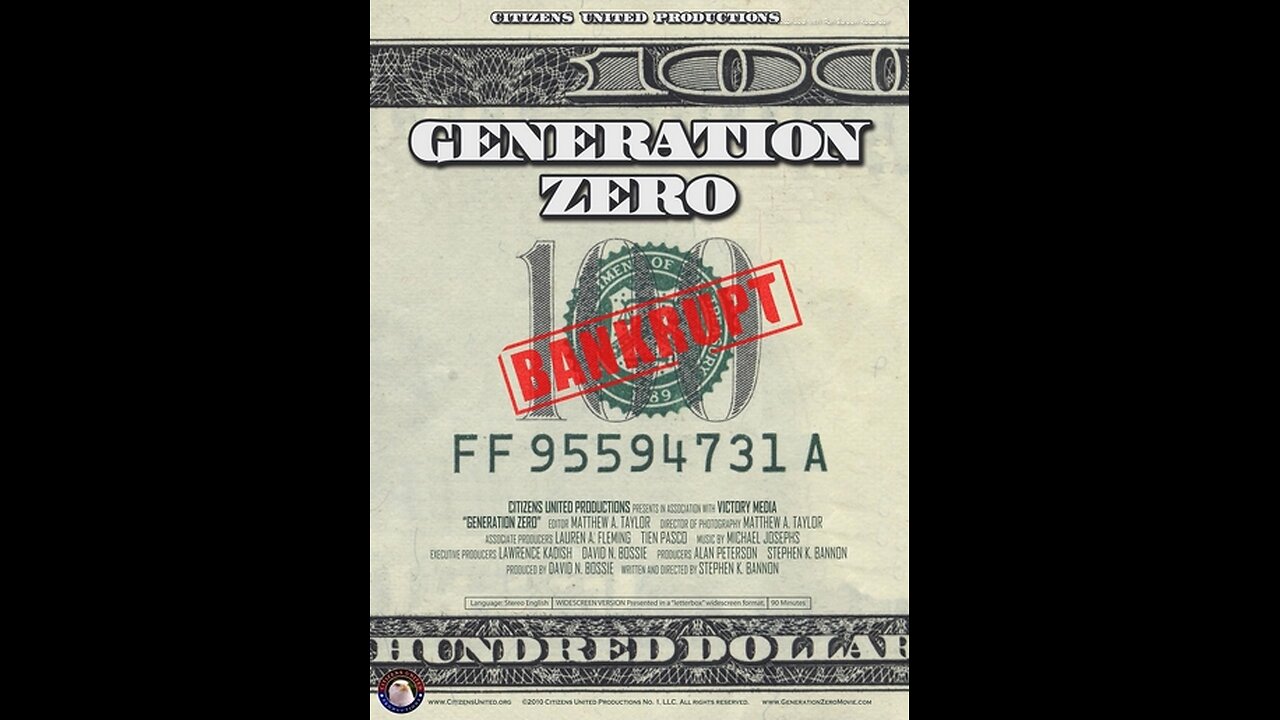
STEVEN BANNON MOVIE>GENERATION ZERO - INTRO WAR ROOM - 12-14-2024 - WRITTEN, DIRECTED & PRODUCED BY STEVEN K. BANNON GENERATION ZERO - 2010 - 136 mins.
STEVEN K. BANNON MOVIE>GENERATION ZERO - INTRO WAR ROOM - 12-14-2024. MOVIE WRITTEN AND DIRECTED BY STEVEN K. BANNON - 2010 - 136 mins.
.
2000–Present: New Silent Generation or Generation Z
1980 to 2000: Millennials or Generation Y
1965 to 1979: Thirteeners or Generation X
1946 to 1964: Baby Boomers
1925 to 1945: The Silent Generation
1900 to 1924: The G.I. Generation
.
A Brief History of Generational Names
1. Generation Alpha: Born After 2010
Generation Alpha is the first to grow up in a wholly digital world. (Gen Z was close, but most members likely caught a few phone-free moments in their youth.) Mark McCrindle, founder of the Australian consultancy firm McCrindle Research, introduced the term: "It conforms to the scientific nomenclature of using the Greek alphabet instead of the Latin alphabet, and there was no point in going back to A; after all, they are the first generation born fully into the 21st century, and therefore they are the start of something new, not a return to the old." Members of Generation Alpha include North West, Prince George, and Blue Ivy Carter.
2. Generation Z (iGen): Born 1997–2010
Generation Z received its nickname as part of the alphabetical naming trend that started with Generation X (more on that later) two generations ago. However, Jean Twenge, Ph.D., helped coin another popular moniker in her book, iGen, which explores the rise of the first generation to grow up with smartphones. Many members of Gen Z came of age at the time of the COVID-19 pandemic, which greatly altered their young adult lives. A few notable names from this generation are Millie Bobby Brown, Greta Thunburg, and Billie Eilish.
3. Millennial Generation (Generation Y): Born 1981–1996
The Millennial Generation got its nickname because its oldest members became adults at the turn of the millennium. While it's difficult to pinpoint exactly who came up with the title, here's what we do know: During the early '90s, media outlets often used the term "Generation Y" to describe those born immediately after Generation X. Howard and Strauss use the term "Millennial" in their 1991 book to describe the cohort, while Advertising Age is credited with using the term in a 1993 editorial.
It wasn't until 2015 that the Millennial generation officially outnumbered the Baby Boomers, and in 2020, they became the country's most dominant generation in terms of numbers. Millennials are also known for bringing about a "baby bust," or a sharp decrease in the birth rate. A few famous representatives of this age cohort are Mark Zuckerberg, Beyoncé, and Taylor Swift.
4. Xennial Generation: Born 1977 to 1983
The Xennials are the first microgeneration on our list. Writer Sarah Stankorb first introduced this termin an article titled "Reasonable People Disagree about the Post-Gen X, Pre-Millennial Generation." She notes that the generation of people born between 1977 and 1983 "serves as a bridge between the disaffection of Gen X and the blithe optimism of Millennials." Xennials in pop culture include James Franco, Kim Kardashian, and Macaulay Culkin.
5. Generation X: Born 1965–1980
Howe and Strauss originally suggested the name "Thirteeners" to describe this generation, but it didn't stick. (It came about because they were the 13th generation born since the American Revolution). Instead, Canadian author Douglas Coupland was the one to give Gen Xers their most popular title. In 1991, his novel Generation X: Tales for an Accelerated Culture, a story about a group of 20-somethings looking for better meaning in life, was published. Famous members of this generation include Elon Musk, Eminem, and Kurt Cobain.
6. Generation Jones: Born 1955 to 1964
Generation Jones is also considered a "microgeneration," or a group of individuals born at the end of one generation and the beginning of another. The term Generation Jones was coined by television producer Jonathan Pontell, who later published a book with the same name. According to Pontell, the title aptly describes the competition these individuals felt with the Baby Boomers and the sense that they needed to continue "keeping up with the Joneses." It also lends itself to the perceived increase in drug use during that time and the associated slang. Some public figures that fall into this age group are Madonna, Bill Gates, and Barack Obama.
7. The Baby Boomer Generation: Born 1946 to 1964
The Baby Boomer Generation consists of individuals born during the U.S. baby boom that followed World War II. The term first appeared in a 1941 issue of LIFE Magazine in an article detailing the dramatic spike in births following the Great Depression and the Peacetime Draft of 1940 and claiming that “the U.S. baby boom is bad news for Hitler.”
According to data collected from the U.S. Census Bureau, an estimated 76 million births occurred between 1946 and 1964, including those of Bill Clinton, Billy Joel, and Steven Spielberg.
8. The Silent Generation: Born 1928 to 1945
Time first introduced the term "Silent Generation" in a 1951 article that read, "By comparison with the Flaming Youth of their fathers and mothers, today's younger generation is a still, small flame. It does not issue manifestoes, make speeches, or carry posters." Born into great uncertainty, individuals from this group were often written off as unimaginative and withdrawn. Famous individuals born in this decade include Robert DeNiro, Julie Andrews, and Anthony Fauci.
9. The Greatest Generation (GI Generation): Born 1901–1927
This generation would not receive its designation until 1991, when Howe and Strauss first hit the scene. In Generations, they refer to the generation tasked with fighting World War II as the G.I. Generation—G.I. standing for "government issue."
Less than a decade later, however, journalist Tom Brokaw'sThe Greatest Generation, a book about those who survived the Great Depression and World War II, hit shelves. His term began to supersede Howe and Strauss' in popular culture, though the "G.I. Generation" is still recognized as an appropriate title.
Famous members of this generation include John F. Kennedy and Rosa Parks.
10. The Lost Generation: Born 1883-1910
The idea of naming each generation didn't take hold until the 20th century when author Gertrude Stein began referring to people who came of age during the First World War as "The Lost Generation." Her intention was to capture the disillusionment present in post-World War I society. According to friend and fellow author Ernest Hemingway, Stein picked up the phrase in conversation with a French farmer, who dismissed the younger generation as a “génération perdue.” Hemingway later used the same epigraph in his first major novel, The Sun Also Rises. Other famous names from this generation include James Joyce, C.S. Lewis, and Ezra Pound.
RELATED: 26 Basic American History Questions Most People Get Wrong.
Generational Naming Outside of the United States
The names listed above are specific to the U.S., but plenty of generational titles are used around the world.
For instance, in South Africa, individuals born in 1994 or after the end of Apartheid are commonly referred to as the Born Free Generation. There's also the Revolution Generation in Romania—those born in 1989 and after the collapse of communism.
In Norway, people born around 2000 are actually called "Generation Achievements," which makes sense coming from a place once dubbed the happiest country in the world.
This story has been updated to include additional entries, fact-checking, and copy-editing.
TAGS:
Evergreen
Article
Seo
Update
Sources referenced in this article
Millennials overtake Baby Boomers as America’s largest generation
Link to referenced article > https://bestlifeonline.com/generation-names/
.
-
 9:39
9:39
LEARN FROM HISTORY OR DOOMED TO REPEAT IT
12 days agoBANNON>WE ARE SO FAR FROM WINNNG>WE ARE UP AGAINST THE ADMINISTRATIVE STATE BUILT UP FOR 80 YEARS>WE ARE AT WAR - 9 mins.
35 -
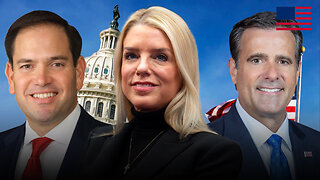 LIVE
LIVE
The Charlie Kirk Show
1 hour agoThe Confirmation Marathon | Davis | 1.15.2025
9,516 watching -
 24:03
24:03
Stephen Gardner
23 hours ago🔥Steve Bannon VOWS TO DESTROY Elon Musk's relationship with Trump!!
14.8K117 -
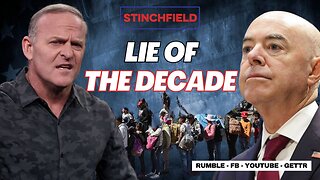 LIVE
LIVE
Grant Stinchfield
1 hour ago"Most Secure Border in Years," Team Biden Fiction on Full Display
270 watching -
 LIVE
LIVE
The Dana Show with Dana Loesch
1 hour agoTRUMP'S PICKS SQUARE OFF | The Dana Show LIVE On Rumble!
455 watching -
 LIVE
LIVE
The Boomer Effect
25 minutes agoWhat In The Universe Is Going On? Are We Alone?
229 watching -
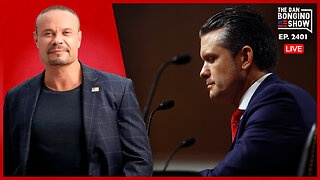 59:56
59:56
The Dan Bongino Show
4 hours agoThe Hapless, Goon Democrats Face-Plant At Hegseth’s Hearing (Ep. 2401) - 01/15/2025
409K1.09K -
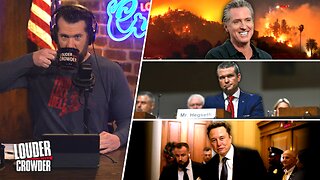 2:28:17
2:28:17
Steven Crowder
1 day agoWe’re Back: Hegseth’s Confirmation, Cali Wild Fires & Elon's Free Speech Fiasco
335K316 -
 1:02:10
1:02:10
The Rubin Report
2 hours agoElizabeth Warren Humiliated as Her Trap for Pete Hegseth Blows Up in Her Face | Rudy Giuliani
25.9K16 -
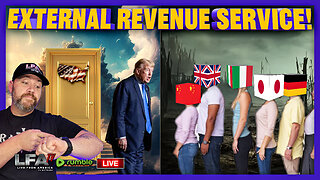 2:03:12
2:03:12
LFA TV
18 hours agoEXTERNAL REVENUE SERVICE! | LIVE FROM AMERICA 1.15.25 11am
33.4K10